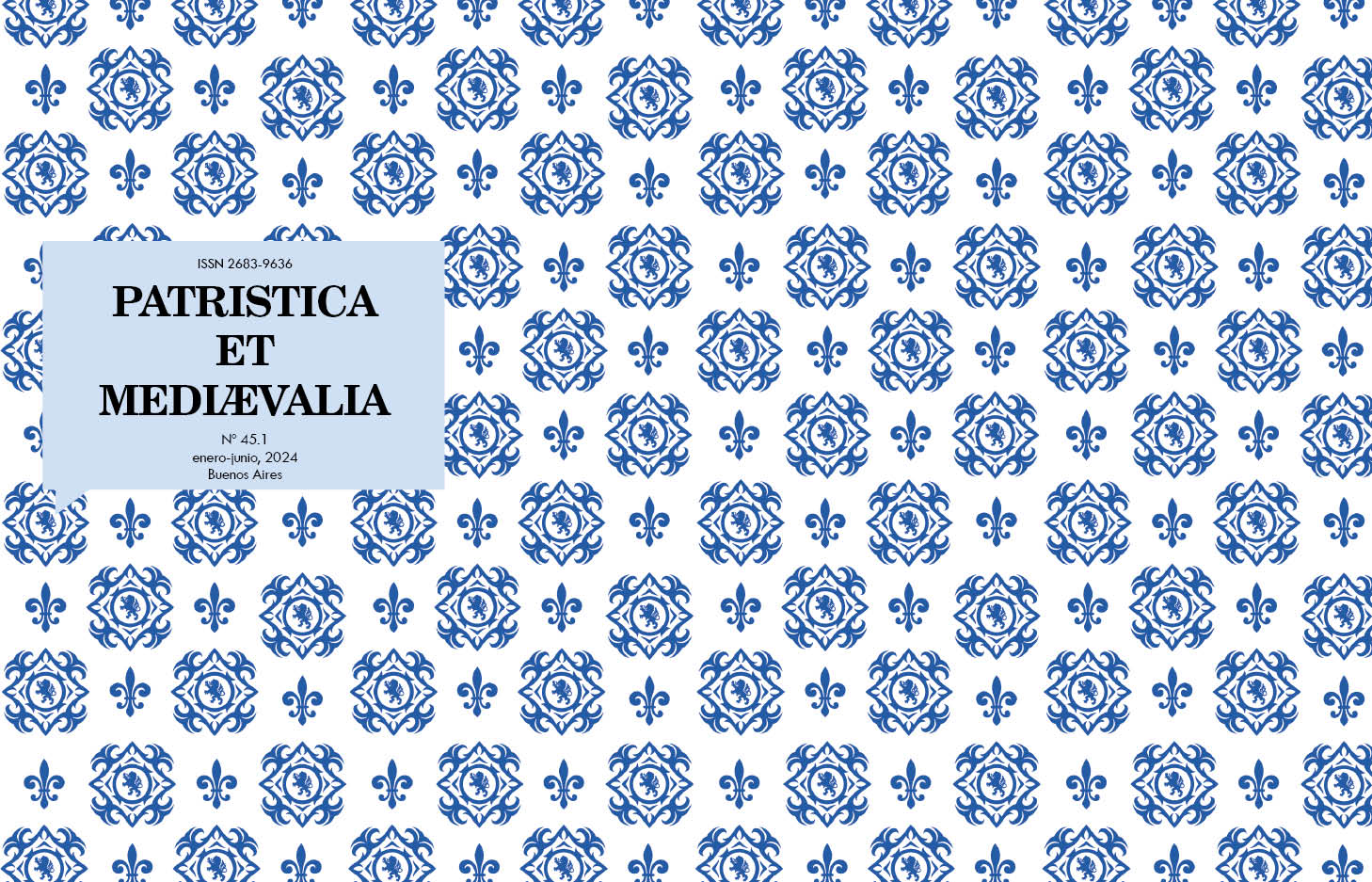Scotus on the Distinction Between Nature and Haecceity
Abstract
With the present article, I aim to analyze and evaluate the application of what Duns Scotus (c. 1265-1308) classifies as qualified distinctions to the relation between a principle of individuation, or haecceity, and the specific nature that corresponds to it. In the Scotistic milieu, a qualified distinction is traditionally characterized as any distinction requiring inseparability between its distinguenda, while an unqualified distinction is usually viewed as requiring the opposite: separability. My conclusion is that the only qualified distinction able to be applied to nature and haecceity is the one Scotus calls “adequate distinction”. The other two qualified distinctions available –formal and modal– are not up for the job because relevant aspects of the nature/haecceity relation do not conform to their definitions.Downloads
References
Ioannes Duns Scotus (1950-2013). Ordinatio (Opera Omnia 1-14). Ed. Balić, C. et al. Cidade do Vaticano: Typis Polyglottis Vaticanis.
Ioannes Duns Scotus (1960-2004). Lectura (Opera Omnia 16-21). Ed. Balić, C. et al. Cidade do Vaticano: Typis Polyglottis Vaticanis
Ioannes Duns Scotus (1997-2006). Quaestiones super libros Metaphysicorum Aristotelis (Opera Philosophica 3-4). Ed. Andrews, R. et al. Nova Iorque: Franciscan Institute.
John Duns Scotus (2004). The Examined Reports of the Paris Lectures: Reportatio I-A. Ed. e trad. Wolter, A. B. e Bychkov, O. V. Nova Iorque: Franciscan Institute.
Adams, M. M. (1976). “Ockham on Identity and Distinction”, Franciscan Studies 36.1, 5-74.
Blander, J. (2014). Dependence, Separability, and Theories of Identity and Distinction in Late Medieval Philosophy: Case Studies from Scotus and Ockham. Tese de doutorado, UCLA.
Cross, R. (1995). “Duns Scotus’s Anti-Reductionistic Account of Material Substance”, Vivarium 33.2, 137-170.
Cross, R. (1998). The Physics of Duns Scotus: The Scientific Context of a Theological Vision. Oxford: Clarendon Press.
Grajewski, M. J. (1944). The Formal Distinction of Duns Scotus: A Study in Metphysics. Washington: Catholic University of America Press.
King. P. (1992). “Duns Scotus on the Common Nature and the Individual Difference, Philosophical Topics 20.2, 50-76.
King, P. (2003). “Scotus on Metaphysics”. Em: Williams, T. (ed.). The Cambridge Companion to Duns Scotus. Cambridge: Cambridge University Press, 15-68.
Tweedale, M. M. (1999). Scotus vs. Ockham: A Medieval Dispute over Universals. 2 vols. Lewiston: Edwin Mellen Press.
Vos, A. (2006). The Philosophy of John Duns Scotus. Edimburgo: Edinburgh University Press.
1. The authors who publish in this magazine accept the following conditions:
-
They retain the copyright and grant to the magazine the right of the first publication, with the work registered under the Attribution-ShareAlike 4.0 International License that allows third parties to use what is published as long as they mention the authorship of the work and the first publication in this magazine.
-
They can make other independent and additional contractual agreements for the non-exclusive distribution of the version of the article published in this magazine (eg. include it in an institutional repository or publish it in a book) provided that they clearly indicate that the work was first published in this journal.
-
They are allowed and recommended to publish their work on the Internet (for example on institutional or personal pages).
2. AutoArchive Conditions. Authors are allowed and encouraged to distribute post-print electronic versions of their manuscripts because it promotes their circulation, a possible increase of quotation and a major reach among the Academic community. Color RoMEO: blue.













